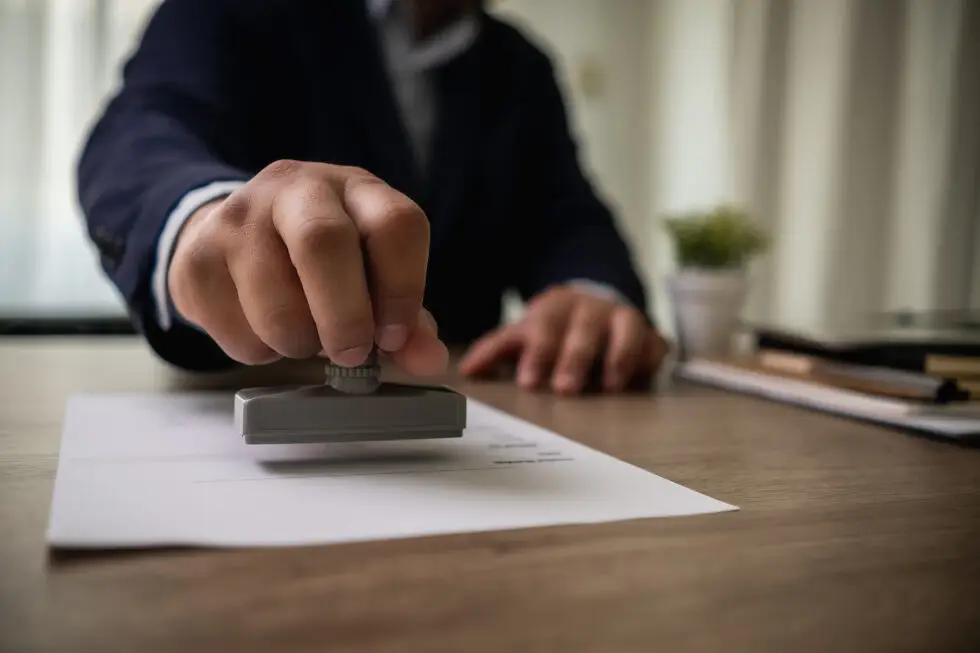Permanent residence permit Overview and background information
Before we look at the special conditions and exceptions, it is important for you to understand the basics of the permanent residence permit. This forms the basis for all further information.
Definition and meaning
An unlimited residence permit allows foreign nationals to live and work in Germany permanently. In contrast to temporary residence permits, which have to be renewed regularly, the permanent residence permit offers you a stable and long-term perspective. It grants you almost the same rights as German citizens, including unrestricted access to the labor market and the opportunity to bring family members to Germany.
Legal requirement
The legal basis for the permanent residence permit is regulated in § 9 AufenthG. This describes the general requirements that must be met, including a five-year stay in Germany, a secure livelihood and sufficient knowledge of German.
Requirements for a permanent residence permit
In order to obtain a permanent residence permit in accordance with Section 9 (2) AufenthG, you must meet certain requirements. However, there are exceptions to the language requirements that make it possible to obtain a permanent residence permit without a B1 certificate.
General requirements
The general requirements for a permanent residence permit include several criteria that must be met:
Legal residence: At least 5 years of legal residence in Germany.
Secured means of subsistence: The means of subsistence must be secured without recourse to public funds.
Pension insurance contributions: Payment of at least 60 months of compulsory or voluntary contributions to statutory pension insurance.
Impunity: No previous convictions or ongoing criminal proceedings.
Living space: Proof of sufficient living space for yourself and any family members moving in with you.
Integration course: Successful participation in an integration course.
German language skills: Sufficient knowledge of the German language, generally at level B1.
Employment permit: Permission for employment from the Federal Employment Agency.
Naturalization test/Living in Germany test: Proof of basic knowledge of the legal and social order and living conditions in the federal territory (Germany).
Below is a table giving an overview of the general requirements:
Prerequisite | Description |
|---|---|
5 years legal residence | Minimum length of stay in Germany |
Secure livelihood | No recourse to public funds |
60 monthly contributions to pension insurance | Proof of contribution payments |
Impunity | No previous convictions or ongoing criminal proceedings |
Sufficient living space | Proof of sufficient living space |
Integration course | Successful participation |
German language skills (B1) | Proof of language skills |
Naturalization test | Successfully passed naturalization test |
Employment permit | Permission for employment from the Federal Employment Agency |
Requirements Permanent residence permit without B1
There are exceptions that make it possible to obtain a permanent Residence permit even without the B1 certificate.
The exceptions are regulated in Section 9 (2) AufenthG at Settlement permit and include
Successful integration course: If an integration course has been successfully completed, the certificate is sufficient.
Residence permit before January 1, 2005: Persons who received their residence permit before this date are exempt from the B1 requirement and simple language skills at A1 level are sufficient according to § 104 (2) AufenthG.
Illness or disability: Persons who cannot prove B1 German language skills due to a physical, mental or psychological illness or disability require clear medical proof in order to be exempted from this requirement.
- No request for an integration course: If you have never received a request for an integration course from Foreigners' office , you do not have to provide proof of a B1 certificate and simple language skills at A1 level are sufficient.
Below is a table with an overview of the exceptions to a B1 certificate
Exception | Proof |
|---|---|
Successful integration course | Proof of successful completion of an integration course |
Residence permit before January 1, 2005 | Proof of residence permit before January 1, 2005 and proof of basic language skills (A1) |
Illness or disability | Medical proof of physical, mental or psychological illness or disability |
No request for integration test to date | Proof of basic language skills (A1) |

Alternative proofs and lower language levels
In addition to the classic German certificates at level B1, there are also other ways to prove your language skills and integration efforts. These alternative certificates can be particularly helpful if the regular language examinations cannot be taken or other qualifications are available.
A1 certificate in combination with Residence permit before 1.1.2005
For people who received their Residence permit before January 1, 2005, there is the option of using an A1 language certificate as sufficient proof. In these cases, the lower language certificate can be recognized together with the long period of residence in Germany.
School and professional certificates
Educational and professional achievements can also be recognized as proof of sufficient language skills and integration efforts. These include:
School certificate:
- Secondary school leaving certificate or
- At least 4 years of successful attendance at a German school (promotion to the next higher class).
Proof of occupation:
- Completed vocational training in Germany
Overview of educational and professional certificates:
Proof | Description |
|---|---|
Secondary school leaving certificate | Graduation from a secondary school in Germany |
4 years German school | Attendance at a German school for at least 4 years |
Completed vocational training | Completion of vocational training in Germany |
Alternative proof of integration
Successful completion of an integration course
In addition to school and vocational certificates, successful completion of an integration course is also recognized as proof. The reason for this is that a B1 test is part of the integration course.
Attending a German school abroad
If you have attended a German school abroad, this will also be recognized as proof. The decisive factor is that the school is recognized by Germany and that the German lessons are at B1 level.
Application procedure for a permanent residence permit without B1
Applying for a permanent residence permit without a B1 language certificate can be complex. Here you will find detailed instructions for the application process as well as an overview of the documents you need to submit.
Instructions for the application process:
The application process for a permanent residence permit without a B1 certificate involves several steps. Here is a detailed step-by-step guide:
Step 1: Preparation
- Check whether you meet the general and specific requirements.
- Collect all the necessary evidence and documents.
Step 2: Advice
- Arrange a consultation appointment with the responsible Foreigners' office to find out about the application and the specific requirements.
- Take the opportunity to get support from a lawyer or an advice service for migrants.
Step 3: Application
- Fill out the application form completely and correctly.
- Submit the application in person to the responsible Foreigners' office .
Step 4: Document submission
- Make sure that all required documents are enclosed.
- Make sure that all supporting documents are available in the original and as copies.
Step 5: Waiting time and possible Lawsuit for failure of act
- The authority has 12 weeks to process your application. You will have to wait during this time.
- If the authority has not processed the application, you have the right to file a complaint with the administrative court against the authority. Lawsuit for failure of act against the authority.
Step 6: Decision and receipt of the residence permit
- Once your application has been successfully reviewed and approved, you will receive your permanent residence permit.
- Keep the permit in a safe place and find out about any obligations or deadlines.
Documents required for a permanent residence permit without B1
To submit the application successfully, you will need a number of documents and proofs. Here is an overview of the required documents:
- Application form: Fully completed and signed.
- Passport photo: Current biometric photo.
- Passport: Valid passport or other recognized travel document.
- Proof of legal residence: Documents that prove your previous residence permit.
- Proof of secure livelihood: Proof of income, employment contracts, tax assessment notices or similar.
- Proof of pension insurance contributions: Proof of payment of 60 monthly contributions to the statutory pension insurance.
- Proof of no criminal record: Certificate of good conduct and, if applicable, other certificates.
- Proof of residence: rental contract or proof of ownership.
- Proof of integration efforts: Certificate of participation in an integration course, school or vocational certificates.
- Medical certificate: If applicable, medical certificate for physical, mental or psychological illness or disability.
Alternative proof: Other documents that prove your integration and language skills (e.g. A1 certificate, school or professional certificates).
Overview of the necessary documents as a table:
Document | Description |
|---|---|
Application form | Fully completed and signed |
Passport photo | Current biometric photo |
Passport | Valid passport or recognized travel document |
Proof of legal residence | Documents relating to the previous residence permit |
Proof of secure livelihood | Proof of income, employment contracts, tax assessment notices |
Proof of pension insurance contributions | Proof of payment of 60 monthly contributions |
Proof of impunity | Certificate of good conduct and other certificates |
Proof of living space | Rental agreement or proof of ownership |
Proof of integration efforts | Certificate of participation in an integration course, school or professional certificates |
Medical certificate | Medical certificate in case of illness or disability |
Alternative evidence | Further documents on integration and language skills |
Common difficulties and possible solutions
The following describes typical problems with the application process for a permanent residence permit and provides helpful tips on how to overcome them.
Typical challenges with the permanent residence permit without B1
There are several common problems and misunderstandings that can complicate the application process:
Incomplete application documents
- Many applications are rejected or delayed because the required documents are missing or incomplete.
Proof of language skills
- Difficulties in providing alternative proof of German language skills, especially if the B1 certificate is not available.
Misunderstandings regarding the exemptions
- Incorrect understanding of the legal exceptions that allow a permanent residence permit without B1.
Long processing times
- Delays in processing the application by the responsible Foreigners' office.
Lack of advice
- Missing or inadequate advice can lead to errors in the application process.
Advice and tips
To avoid these difficulties and make the application process successful, the following tips and advice may be helpful:
Careful preparation
- Make sure that you submit all required documents completely and correctly.
- Use checklists and information sheets from Foreigners' office to check your documents.
Clarity in language skills
- Collect all possible alternative proof of your German language skills, e.g. A2 certificates, school or professional certificates.
- If possible, attend an integration course and document your progress.
Understanding the exemptions
- Find out exactly what the legal exemptions are and check whether you qualify for one of them.
- Consult official sources and, if necessary, a lawyer or advisor to avoid misunderstandings.
Patience and inquiries
- Be prepared for possible waiting times and remain patient.
- Contact Foreigners' office regularly to find out the status of your application and to provide any missing information.
Professional advice
- Use the support of lawyers or advice centers that specialize in residence law.
- Professional advice can help to speed up the process and avoid mistakes.
Requirements for Settlement permit
Summary and conclusion on the permanent residence permit without B1
Here you will find a brief summary of the most important points and a final conclusion to give you a comprehensive overview of the topic.
Summary of the most important points:
General requirements
- You must have lived legally in Germany for at least 5 years.
- Your livelihood must be secured and you should have paid 60 monthly contributions to the statutory pension insurance.
- Other requirements include exemption from punishment, sufficient living space and an employment permit from the Federal Employment Agency.
Specific requirements without B1
- There are exceptions where you do not need a B1 certificate, such as successful completion of an integration course, receipt of a residence permit before January 1, 2005 or a physical, mental or psychological illness with medical proof.
Alternative evidence
- An A1 certificate can be recognized in combination with a Residence permit before 1 January 2005 or if you have never been asked to take an integration course.
- School certificates such as a secondary school leaving certificate or at least 4 years of successful attendance at a German school as well as professional certificates such as 15 years of work in Germany or completed vocational training can also be helpful.
Conclusions
Obtaining a permanent residence permit without a B1 certificate may be a challenge, but it is perfectly feasible if you take the right steps and provide all the necessary evidence.
Remember that careful preparation and strict adherence to the requirements are the keys to success. With patience and the right information at your side, you can successfully master the process and enjoy the stability and security of a permanent residence permit in Germany.

In this article, you will learn everything you need to know about the requirements and the application. We will guide you step by step through the process so that you are well prepared and successfully obtain your permanent right of residence.
FAQ - The most frequently asked questions about the permanent residence permit without B1
Yes, the approval of Foreigners' office and the embassy is crucial. If Foreigners' office or the embassy do not consider the requirements for a family reunification visa to be met, they can have your application rejected.
Yes, if the reference person in Germany has a Residence permit such as permanent residence in the EUyou are exempt from providing proof of sufficient German language skills. Children under the age of 16 are also exempt from the A1 certificate requirement. Exemption is also possible for health reasons or due to educational or professional qualifications.
The cost of applying for a D visa is 75 € for adult applicants and €37.50 for underage applicants and children. If you are joining German citizens or EU citizens, the application is free of charge.
The duration of a visa for family reunification is between 6 weeks and 3 months. The decisive factor is how long it takes Foreigners' office and the embassy to check the approval. The final decision on the visa is ultimately made by the embassy.
For a D visa for family reunification you need, among other things
- the necessary Residence permit of the person living in Germany,
- securing a livelihood,
- proof of accommodation and, in some cases, proof of the A1 certificate of the person joining you.
There are always exceptions for proof of livelihood, accommodation and language certificate.








